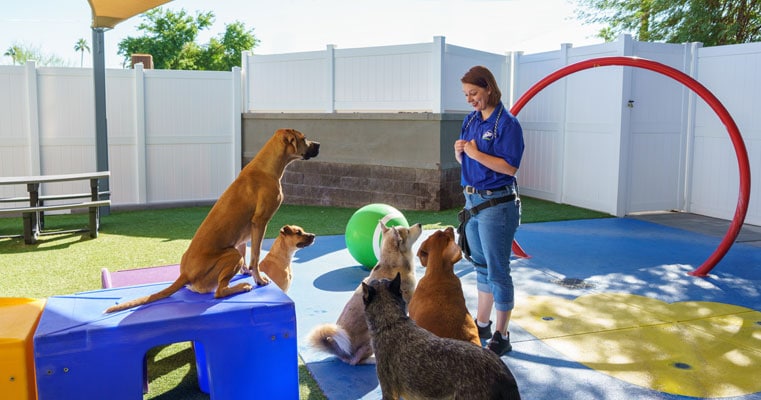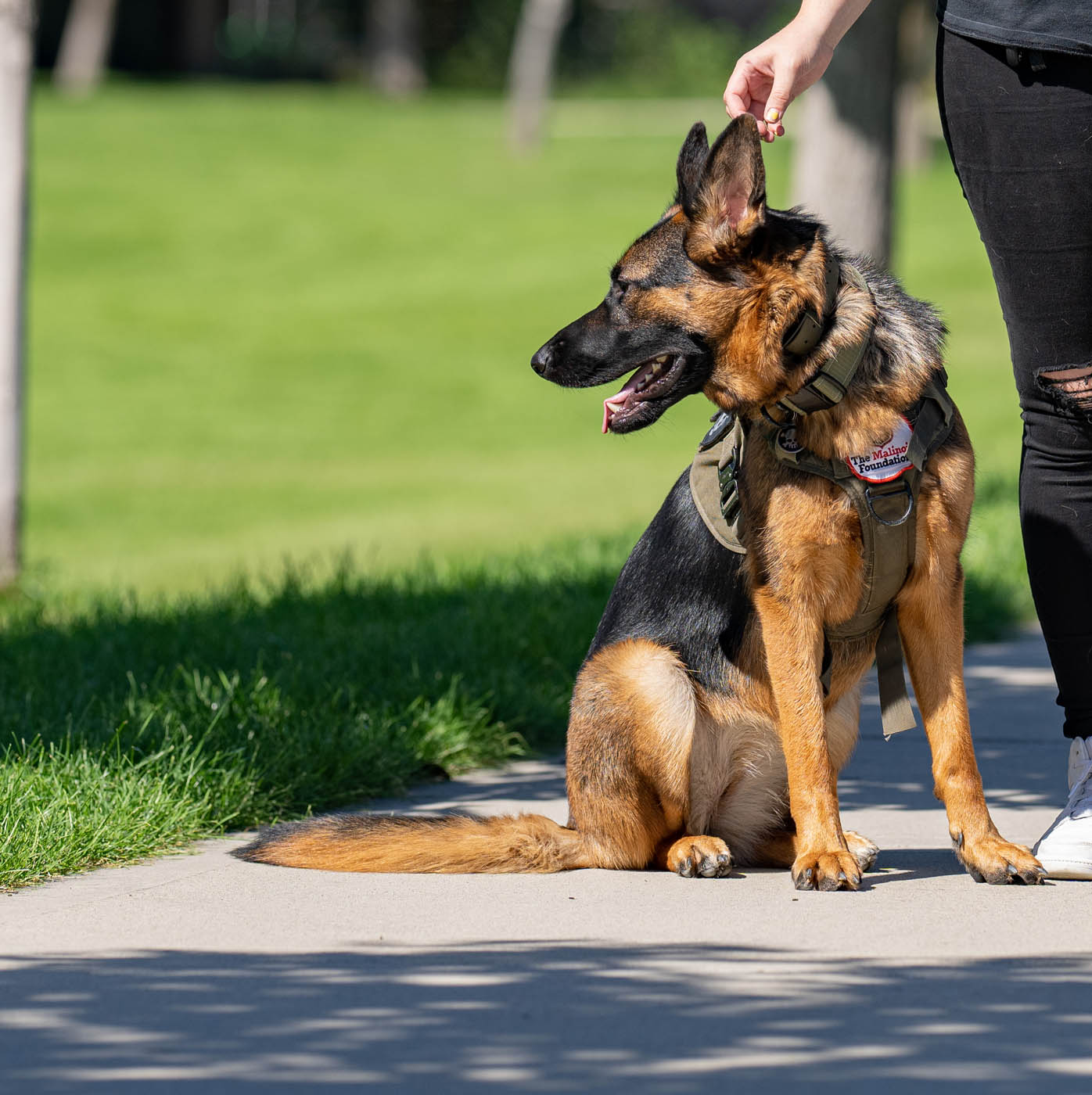The Ultimate Overview to Dog Training Charlotte: Techniques for Success
The Ultimate Overview to Dog Training Charlotte: Techniques for Success
Blog Article
Unlock Your Pet dog's Potential: Proven Canine Training Methods for Success
Effective pet dog training is a nuanced process that hinges on recognizing canine actions and using medically backed methods. By incorporating favorable support, developing clear commands, and prioritizing socialization, canine owners can cultivate an effective partnership with their pets.
Understanding Canine Habits
Recognizing pet habits is essential for reliable training and fostering a favorable relationship in between dogs and their proprietors. A comprehensive grasp of canine body language, vocalizations, and social communications is crucial for recognizing their emotions and needs. Dogs connect largely with non-verbal cues; for instance, a wagging tail may show exhilaration, while pinned ears can indicate anxiety or submission.

Moreover, ecological factors play a substantial role fit a canine's behavior. Adjustments in routine, new surroundings, or the existence of strange individuals can lead to tension or anxiousness in dogs. Acknowledging these triggers allows proprietors to alleviate negative reactions and create appropriate training approaches.
Inevitably, a deep understanding of dog habits lays the foundation for successful training methods, enhancing both actions and the overall bond between the dog and its proprietor. dog training charlotte. This knowledge is crucial for fostering a well-adjusted, delighted canine friend
Positive Support Strategies
Reliable training relies greatly on favorable support methods, which have actually been shown to yield considerable results in forming wanted actions in pets. This method involves rewarding a dog for exhibiting specific behaviors, therefore increasing the probability that these actions will certainly be duplicated. Benefits can take various kinds, including treats, praise, playthings, or play, depending on what inspires the private dog.

It is vital to progressively phase out rewards as the pet discovers the behavior, transitioning to periodic reinforcement. This technique maintains the behavior with time while stopping dependency on constant incentives. By concentrating on positive support, fitness instructors can cultivate a relying on relationship with their dogs, promoting a healthy and balanced and participating training setting that improves total obedience and efficiency.
Developing Consistent Commands
A basic facet of effective pet training is the facility of constant commands. Consistency in commands is crucial for reliable interaction between the fitness instructor and the dog. When commands are consistent, pets find out to associate particular words with preferred behaviors, which speeds up the training process and enhances understanding.
To develop consistent commands, it is vital that all family participants make use of the exact same terms and gestures. For example, if one individual utilizes "sit" while an additional claims "take a seat," it can create complication for the pet dog. Select clear, distinctive words for commands and guarantee everyone associated with the pet dog's training complies with these choices.
Reinforce commands with regular method, ensuring that the pet dog gets ample opportunities to respond appropriately. When a pet effectively follows a command, prompt favorable reinforcement needs to comply with.
Last but not least, be patient. Developing constant commands takes some time and initiative. With commitment and quality, you will aid your dog establish a solid understanding of expectations, eventually causing a mannerly friend.
Socialization and Direct Exposure
Interacting socially a canine is vital for cultivating a well-adjusted and confident buddy. This procedure includes subjecting your pet to a range of atmospheres, people, and various other pets to establish their social skills and flexibility. Early socializing, ideally between the ages of three to fourteen weeks, is crucial, as it lays the groundwork for a pet dog's future behavior.
Throughout socialization, aim to offer favorable experiences in different settings, such as parks, hectic roads, and homes with various other pet dogs. Introduce your canine to various stimulations, including noises, views, and scents, making sure that each encounter is dog trainer on netflix rewarding. This direct exposure helps mitigate anxiety and anxiety, leading the means for a more durable canine.
Involving in controlled group play sessions with other pet dogs can likewise enhance social abilities, teaching your pet dog ideal interactions and borders. Prioritizing socialization will substantially add to your canine's overall joy and habits throughout their life.
Conquering Common Educating Challenges

Pets may have a hard time to concentrate in hectic or strange setups. Gradually desensitize your pet to diversions dog training voice buttons by starting training in a silent atmosphere and gradually introducing more stimuli as they become skilled.
Additionally, behavioral problems like jumping or too much barking can become aggravating. Address these by instructing alternate habits, such as resting smoothly when greeting visitors. Consistency and perseverance are critical; strengthen desired actions constantly and prevent abuse, which can lead to complication.
Last but not least, identify that each canine is special, and training timelines might vary. Dressmaker your method to your pet dog's individual demands, and seek expert assistance if necessary. With determination and the best approaches, getting rid of these challenges can cause a well-trained, happy canine buddy.
Final Thought
To conclude, opening a pet dog's potential demands a thorough strategy that incorporates an understanding of canine habits, the application of favorable reinforcement methods, and the establishment of constant commands. Early socialization and exposure to diverse atmospheres even more improve a pet's flexibility and self-confidence. By attending to common training obstacles with tailored approaches and patience, a cooperative and unified connection between pet dog and handler can be promoted, inevitably causing a mannerly buddy with the ability of growing in various situations.
Reliable pet training is a nuanced process that pivots on understanding canine behavior and using medically backed strategies.Recognizing dog habits is necessary for efficient training and cultivating a positive relationship in between canines and their proprietors.Reliable training relies greatly on positive support strategies, which have actually been shown to yield significant outcomes in forming desired actions in dogs. When commands are uniform, dogs learn to link specific words with preferred behaviors, which accelerates the training procedure and improves understanding.
In final thought, try this website unlocking a canine's possible necessitates a thorough method that incorporates an understanding of canine actions, the application of favorable reinforcement strategies, and the establishment of consistent commands.
Report this page